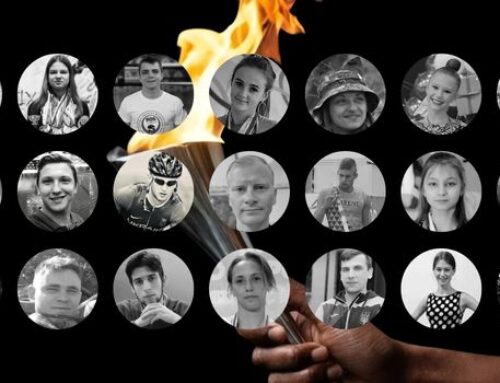Young human rights defenders around the globe continue to face a wide array of threats, abuse and barriers.
Far too many tragic examples bear witness to the fact that young people have generally been relieved of and/or relinquished the fight for human rights. Young human rights defenders around the globe continue to face a wide array of threats, abuse and barriers. Of great surprise is the fact that universities—one of the most important avenues through which the goal of improved democratization and enhanced freedoms can be achieved—have been singled out as one of the most notable places with a rapidly shrinking space for student-led activism. Sadly, many students have adjusted rather than protested this phenomenon.
Historically, the academy (i.e. faculty and students) have played a significant role in the fight for individual rights and freedoms and in the struggle to restore the rule of law and democratic governance in Uganda (Mamdani, 1990; Tandon, 1982). One would argue that this significant role stems from the duty of university students to society. As future professionals, young people in universities have a mandate from society and the state to handle certain fields of competence and certain types of societal interventions. These ethical commitments are rooted in the duty of truth telling (Felde, 2021). Because public universities depend on state funding (that is, public money) to develop knowledge and truth telling, it follows that all citizens “own” and should have access to this knowledge, in all forms (Gills, 2014).
The International Society for Human Rights (ISHR) has spearheaded numerous interventions to support youthful voices in the fight for human rights. The ISHR is an independent non-profit and non-governmental organization that advocates for people who are non-violently engaged in the realization of human rights in their countries or who are persecuted for claiming their rights. A formerly single organization in Germany, the ISHR has expanded into a network of affiliated civil society groups and NGOs in over 40 countries, who defend the UN Universal Declaration of Human Rights worldwide. And to empower those previously ignored and left behind.
The ISHR recently launched the ambassadors program to have a network of young human rights-oriented persons who champion the ideals of ISHR in their societies. The fruits of this initiative were starkly seen in the recent Twitter space organized by the ISHR under the topic; Young People in Human Rights Defense. The platform attracted young people from all corners of the African continent to share perspectives and experiences. The panelists included Mr. Sheriffo Jobarteh, a law student at the international Open University and the country director of the West African Law Students’ Association in the Gambia; Ms. Yvonne Tesire, a law graduate of Nottingham Trent University and the founding president of the Pan Africa Law Society; Mr Fidel Saeko Tekin, a final year student of law at Kabarak University in Kenya; Ms. Annah Ashaba a renowned student activist and writer who attended Makerere University in Uganda; and Mr. Percy Christopher Mpindi, the current ISHR ambassador under this program.

The rich discussion offered hundreds of listeners a one-in-a-million opportunity to listen and contribute to great insights on academic freedom, police brutality, gender violence, and the growing militarism on the African continent. Initiatives like these Twitter spaces continue to inspire self-conscious-driven student activism among young people. Student activism in this sense is understood to mean the ‘individual or collective student voice demanding social change’ (Byaruhanga 2006, p.31). With the emergence of new platforms in the digital public sphere, many young people have adopted novel means of advocating for change. The ISHR, through these Twitter Spaces, seeks to amplify the voices of young people who have been marginalized in the traditional democratic dispensations.
Under the Ambassadors’ Program, ISHR has an opportunity to promote what some scholars have called the ‘professional’s contract with society’ (Felde, 2021). By this, university students—who later become professionals— have, as part of their collective identity, a contract with society (usually understood as the nation-state) to actively contribute relevant and valid knowledge through policy and advocacy. This platform helps young people to speak out more on the threats to democratic values, as these are in the long run threats to their professions too. With an in-person youth event coming up soon under the program, ISHR continues to champion stronger protection of young people in the civic space. As the Secretary General of ISHR, Mr Matthias Boehning noted at the event, ‘ISHR is unique because, unlike most organizations, we don’t just focus on entities, we also focus on individual human rights defenders and work closely with them.”
Young people have offered a glimpse of hope and change through their central roles in different movements. The world witnessed this during the Fridays for Future, Black Lives Matter and the Me Too movements. We owe it to ourselves and posterity as young people to envision and advocate for a world that creates a safe space for everyone through the youthful fight for human rights. The success of this cause depends immeasurably on the support of organisations like the International Society for Human Rights.







Leave A Comment